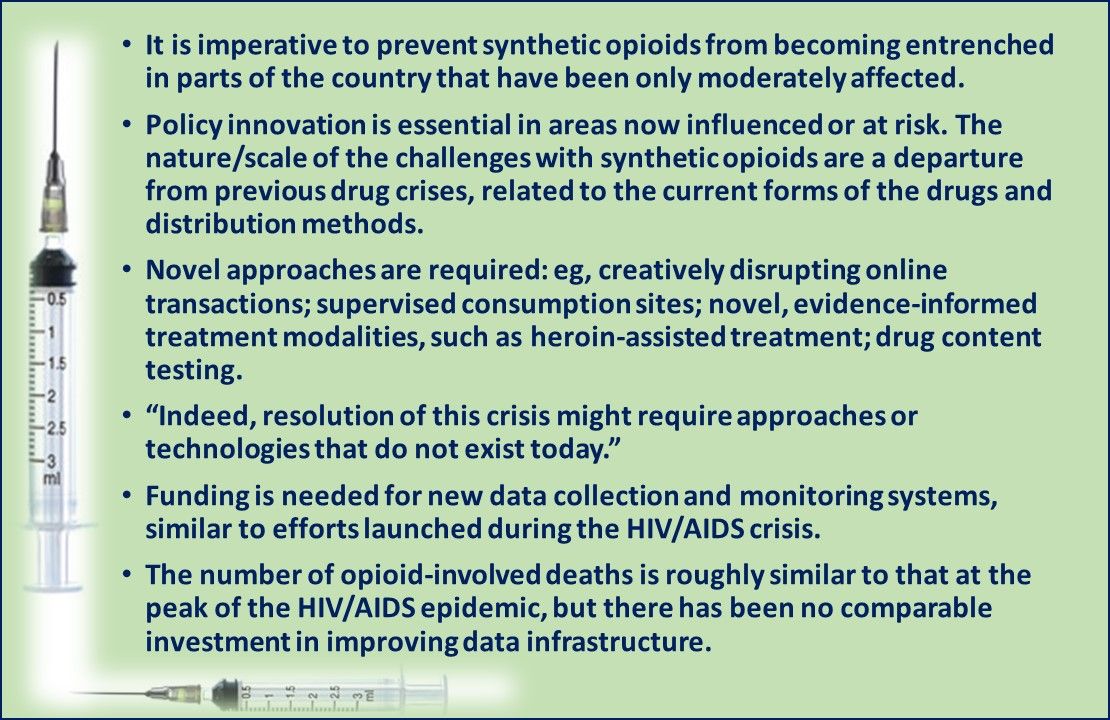- Clinical Technology
- Adult Immunization
- Hepatology
- Pediatric Immunization
- Screening
- Psychiatry
- Allergy
- Women's Health
- Cardiology
- Pediatrics
- Dermatology
- Endocrinology
- Pain Management
- Gastroenterology
- Infectious Disease
- Obesity Medicine
- Rheumatology
- Nephrology
- Neurology
- Pulmonology
Fear a Future with Fentanyl
Deaths related to synthetic opioids increased from approximately 3000 in 2013 to more than 30 000 in 2018. A new book warns there is more to come.

Deaths in the United States related to synthetic opioids increased from approximately 3000 in 2013 to more than 30 000 in 2018. According to a review by the Rand Corporation of a new book titled “The Future of Fentanyl and other Synthetic Opioids,” synthetic opioids are now reportedly involved in twice as many overdose deaths as heroin.
The book's authors make the following points:
1. Dominance of fentanyl and other synthetic opioids is not yet nationwide but currently more common in the Northeast, Midwest, and Appalachia; it is a regional problem also in Canada.
2. Fentanyl is replacing heroin in some markets – not just supplementing or “adulterating” the drug.
3. The surge in availability of these compounds is in part the result of dissemination of new and simplified production methods, increasing use of e-commerce (anonymity), and poor regulation – specifically in China.
4. North America can learn from other countries' experiences with synthetic opioids, particularly European nations.
5. Supplier decisions (vs user demands) are driving the shift to fentanyl.
6. The spread of fentanyl is "episodically fast and has ratchet-like persistence." Once introduced into a geographic area it appears to “sweep through” in a few years.
7. Fentanyl has fueled an increase in deaths vs in the number of users in the US, as it has in other countries where popularity has surged,.
8. Problems with fentanyl and other synthetic opioids will get worse before they get better; vigilance is advised for the US states west of the Mississippi River which remain at high risk.
9. Improving surveillance and drug use monitoring is crucial; policy responses must go beyond existing approaches to deal with a novel threat.
The authors recommendations follow:
